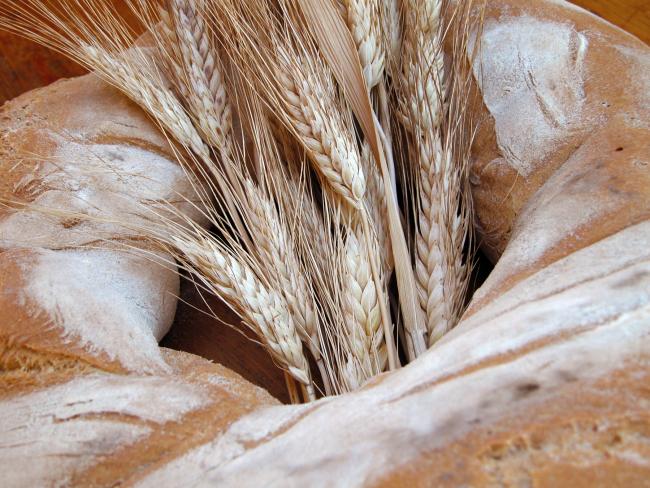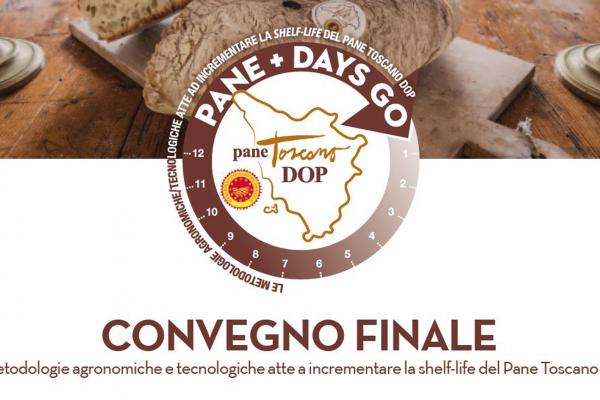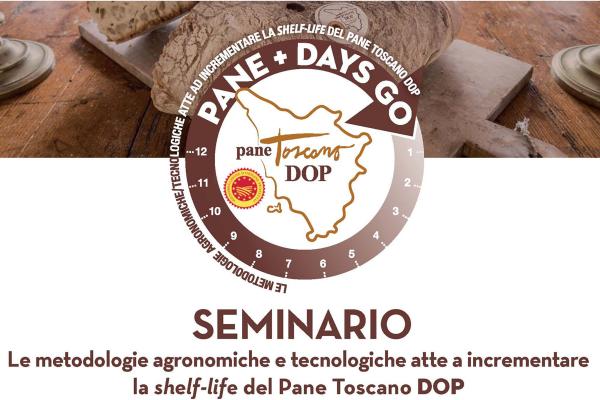The agronomic and technological strategies to be adopted to increase the "shelf-life" of the Tuscan bread PDO

The Strategic Plan is aimed at testing an Innovative Protocol that allows to lengthen the conservation times of Tuscan bread with natural DOP rising, keeping the high quality and nutritional level as unaltered as possible. Since dehydration is the phenomenon directly responsible for the starch retrogradation and therefore the organoleptic degradation of the preserved bread, we aim to act on the one hand on the chemical-compositional characteristics of the soft wheat, on the other hand to increase the resistances that are opposed to the diffusion / water evaporation by using plastic films with suitable permeability.
- Influence the amylopectin / amylose ratio of the starch contained in the grain of the wheat through the agronomic inputs of the fertilizations and the density of sowing on 4 varieties of wheat provided for by the specification of the Tuscan Bread PDO;
- Definition of an agronomic production protocol to direct the company in the production of grains with better characteristics for the preservation of bread;
- Identification of plastic films and polymeric films able to control the phenomenon of water vapor condensation and modified atmosphere packaging (MAP);
- Implementation of short training courses, workshops, dissemination of results
Baked products are perishable foods that undergo severe physical, physiochemical, sensory and microbial changes during storage. In particular, bread staling results in a decrease of consumer acceptance and in great economic losses also for Tuscan producers of the raw material (soft wheat) involved in the production of the "Tuscan Bread Protected Designation of Origin (PDO)".
As well described in Tuscan Bread PDO regulation, the use of sourdough has a long tradition and still plays an important role in bread-making. Its use in baking and its ability to improve the quality and extend the shelf life of bread have been widely described in literature. Furthermore it seems possible to further improve the shelf-life of the "Tuscan Bread PDO" by suitably modifying the composition of the flour and therefore the wheats used in bread, but also making and using the most suitable conditions and conservation methods.
The staling of bread is defined as bread firming over time and results in a loss textural and sensory properties. The retrogradation of starch and water migration are fundamental for staling as they increase bread firming and they directly limit the bread "commercial life".
| Titolo/Descrizione | Url | Tipologia |
|---|---|---|
|
Video material, available for dissemination and sensitisation
|
Materiali utili
|
|
|
Web page dedicated to innovation projects
|
Sito web
|
|
|
Sito del progetto
|
Sito web
|
|
|
Pagina Linkedin
|
Altro
|
|
|
Pagina Facebook del progetto
|
Link ad altri siti che ospitano informazioni del progetto
|
|
|
Video del progetto
|
Materiali utili
|
|
|
Relazione del convegno finale del progetto
|
Materiali utili
|


